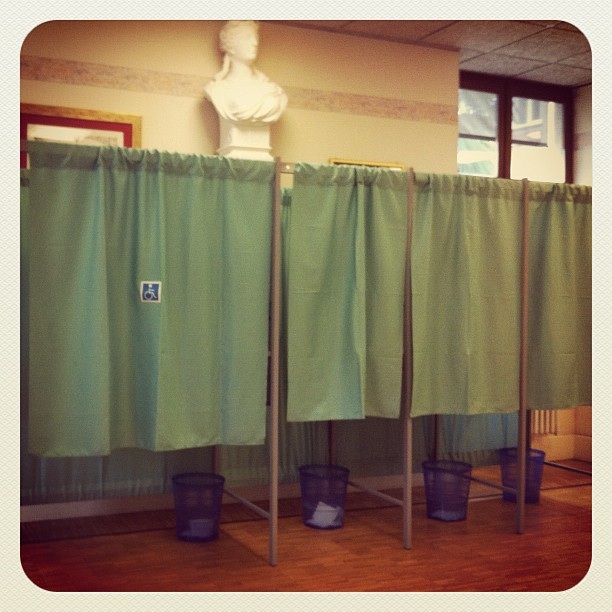|
On Nov. 12, 1960, a small news story appeared in newspapers nationwide. The headlines all were variations on the same final declaration regarding the presidential election that had taken place four day earlier: Richard Nixon was not going to officially challenge the results.
That effectively put an end to official talk of widespread vote fraud in 11 states, most notably Illinois and Texas, where Democrat John F. Kennedy was declared the winner by narrow margins. Yes, Republicans got official recounts in some of those states, and yes, arguments over 1960 continue to this day, but once Nixon conceded, the nation, in an official way, moved on. |
|
|
Found on Newspapers.com
Nixon had reason to fear some votes had been stolen. Consider that only 4,895 voters were registered in Fannin County, Texas, and yet 6,138 votes were counted, with 75 percent of them going to Kennedy. Consider that Kennedy was credited with 187 votes in Angelina County, Texas, even though only 86 people were registered there. In Cook County, Illinois, rumors persisted that Democrats had stuffed ballot boxes, as well.
Maybe Nixon realized this was penny-ante stuff not likely to add up to enough to overturn his 46,000-vote deficit in Texas or the margins in other states. Or maybe Nixon, despite the lasting legacy he earned later in life for alleged cover-ups and abuse of power, had a more noble purpose. As the website constitutioncenter.org notes, Nixon told Earl Mazo, a journalist friend, “our country cannot afford the agony of a constitutional crisis.” Some scholars challenge that version, claiming it was President Eisenhower’s reluctance to get behind fraud allegations that prompted Nixon, but the origin of this bit of nobility is of little matter. Nixon conceded. Al Gore has a similar place in history, conceding one of the closest elections in U.S. history on Dec. 13, 2000, despite winning the popular vote. In the end, Gore said, “for the sake of our unity as a people and the strength of our democracy, I offer my concession.” That is the American tradition — one that has led to a peaceful transfer of power each time an opposition party candidate has been declared the winner of the White House. Losing candidates aren’t always happy about it, but in the end they concede and turn over the keys, so to speak, just as George Washington did to John Adams back in the day. Contrast that tradition with Donald Trump, who already has begun claiming voter fraud weeks ahead of Election Day. According to the Associated Press, Trump tweeted on Monday, “"Of course there is large scale voter fraud happening on and before election day. Why do Republican leaders deny what is going on? So naive!" Yet he offers no concrete evidence. In fact, detailed studies of modern allegations of voter fraud have found evidence to substantiate some problems, but they have involved such a miniscule percentage of votes as to have no effect on election results. A 2007 report by the Brennan Center called, “The Truth About Voter Fraud,” looked closely at several allegedly tampered results and found that, “by any measure, voter fraud is extraordinarily rare.” Several reasons exist for this. Chief among them is the scattered nature of American elections. Each state has its own election laws and methods. Each county tends to count its own ballots. Orchestrating widespread fraud would be complicated and expensive, and it would rely on help from many confederates who agree to keep quiet, something that is virtually impossible in this age of social media and ubiquitous news coverage. In addition, anyone caught committing fraud is liable for up to five years in prison and a $10,000 fine for each fraudulent vote, and those are only the federal penalties. That’s a steep price to pay for little payoff. Computer fraud may be more effective, but states are moving away from computer voting, and the systems that remain are not connected to the Internet. In 2008, a Deseret News editorial noted, with a tone of wonderment, how peaceful the transfer of power would be between George W. Bush and Barack Obama, despite all the political rancor of the time. Looking toward inauguration day, it said, “On that day, a president who has been vilified and lampooned by the opposition party will willingly hand over the most powerful office on earth to that very party. The thought that he might try to hang on and prevent the transfer is unimaginable.” Let’s hope it’s still unimaginable for a loser to hang on. The danger of Trump’s pre-election rhetoric is that it might lead to widespread protest and even violence. Polls currently show Hillary Clinton with a lead, and despite claims ever four years that polls are wrong, they aren’t. The American tradition, even among our least liked presidents, has been to let go and move on for the greater good. That tradition preserves public trust in democracy, and it needs to continue. |


 RSS Feed
RSS Feed

